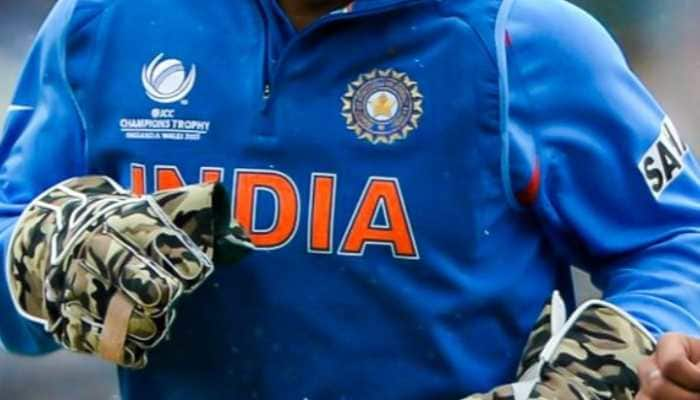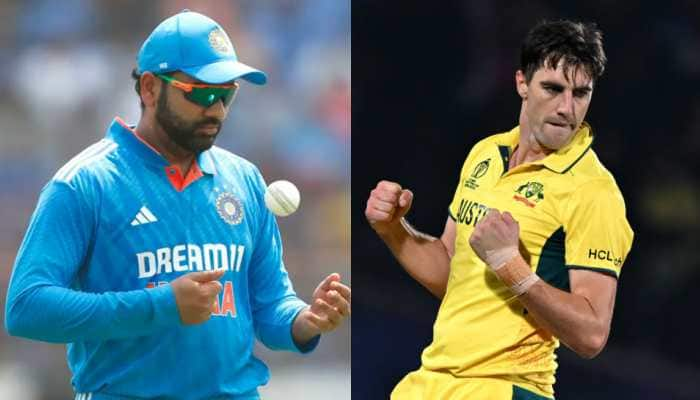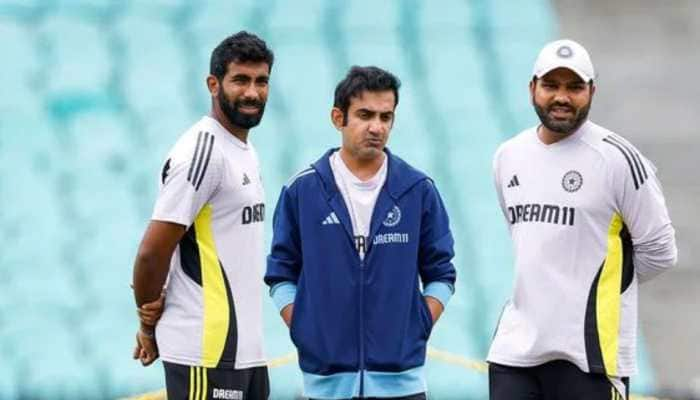'Why Petrol is rising', Zee explains the sudden surge in fuel prices
Amid growing concerns over the spiralling fuel prices, the retail prices of petrol and diesel were hiked again on Tuesday for the sixth time this month. This has propelled the prices to cross the Rs 100-a-litre-mark in places from Nanded in Maharashtra to Rewa in Madhya Pradesh to Jaisalmer in Rajasthan.
- Fuel prices in India hiked again for the sixth time
- There are several factors which control petrol and diesel prices
- Fuel prices differ from state to state depending on the incidence of local taxes such as VAT and freight charges
Trending Photos
)
NEW DELHI: Amid growing concerns over the spiralling fuel prices, the retail prices of petrol and diesel were hiked again on Tuesday for the sixth time this month. This has propelled the prices to cross the Rs 100-a-litre-mark in places from Nanded in Maharashtra to Rewa in Madhya Pradesh to Jaisalmer in Rajasthan.
Petrol price was hiked by 27 paise a litre and diesel by 30 paise per litre, according to a price notification by state-owned fuel retailers. The hike took petrol and diesel prices to their highest-ever level across the country. In Delhi, petrol now comes for Rs 91.80 per litre and diesel is priced at Rs 82.36.
This was the sixth increase in prices since May 4, when the state-owned oil firms ended an 18-day hiatus in rate revision they observed during assembly elections in states like West Bengal.
Lack of uniformity in fuel prices
In the country, fuel prices differ from state to state depending on the incidence of local taxes such as VAT and freight charges. For example, Rajasthan levies the highest value-added tax (VAT) on petrol in the country, followed by Madhya Pradesh. Sri Ganganagar district of Rajasthan had the costliest petrol and diesel in the country at Rs 102.70 per litre and Rs 95.06 a litre respectively.
Also, in Rajasthan, petrol crossed the Rs 100-mark in Jaisalmer (Rs 100.71) and Bikaner (Rs 100.70) while it neared that mark in Barmer (Rs 99.82). Petrol in several districts of Madhya Pradesh, including Shahdol (Rs 102.06), Rewa (Rs 102.04), Chhindwara (Rs 101.67) and Balaghat (Rs 101.98) crossed the physiological mark. It neared that mark in Indore (Rs 99.90 a litre) and Bhopal (Rs 99.83). In Nanded district of Maharashtra, petrol was being sold at Rs 100.30.
How much the fuel prices have risen in the recent past?
The fuel prices have been hiked for the sixth time this month. In the recent past, petrol price has risen by Rs 1.41 per litre and diesel by Rs 1.63. After raising petrol price by a record Rs 21.58 per litre and diesel by Rs 19.18 since the government raised excise duty to an all-time high in March last year, state-owned fuel retailers, IOC, BPCL and HPCL had reduced petrol price by 67 paise a litre and diesel by 74 paise per litre effected between March 24 and April 15.
Factors that control the fuel prices in India?
Petrol and diesel are ‘decontrolled’ fuels and they are controlled by the market forces. The retail price of petrol and diesel in India is linked to the global crude prices. India imports nearly 80 per cent of its petrol and diesel demand and 20 per cent is exported. Hence, the petrol and diesel prices in India are largely dependent on prices of these fuels in the international market — and not on the basis of crude oil prices. Though international petrol and diesel prices generally move in line with crude oil prices, it need not be the case always, given that demand and supply dynamics could be different.
When global fuel prices go up, the burden is passed on to the consumer, who has to cough up more for every litre of fuel consumed. However, when the prices go down, the government slaps fresh taxes and levies to ensure that it rakes in extra revenues. In both cases, the real beneficiary of the price decontrol mechanism is the government and the consumer, and the fuel retailing companies have to bear the brunt.
Central taxes and levies
The excise tax levied by the Central and state government is another factor which is to be blamed for the fuel price hike. It is notable that under this head, a whopping Rs 14 lakh crore has been collected by the Centre and states combined in the past three years. The Centre has changed the way these taxes are shared with the states, which implies that the central government now gets a bigger pie and states find themselves fiscally cornered.
GST and price fixation
The petrol prices are structured by the excise duty + VAT. While the excise duty is collected by the central government, the VAT goes to the state government's revenue. Central and state taxes make up for 60 per cent of the retail selling price of petrol and over 54 per cent of diesel. The union government levies Rs 32.90 per litre of excise duty on petrol and Rs 31.80 on diesel.
Finance Commission's formula for fixing fuel prices
The Finance Commission says that states should get as much as 41% of their excise share. But due to the cess levied by the Centre, it gets a bigger share of taxes, leaving states with little option but to impose/raise their own taxes on fuel. This loss of excise, coupled with GST dues, drains the states financially, forcing them to charge extra state excise tax and also VAT.
Cartelisation by Oil PSUs
Another factor that affects the fuel prices is the cartelisation by three PSU oil companies that charge nearly the same price, despite different cost structures and efficiencies. The state-run oil marketing companies including Indian Oil Corporation, Bharat Petroleum and Hindustan Petroleum align the rates of domestic fuel with the global crude oil prices by taking into account changes in the foreign exchange rates.
What does the govt say?
Union Petroleum and Natural Gas and Steel Minister Dharmendra Pradhan had recently said that reduced fuel production and oil-rich nations seeking more profits were the primary reasons behind spiralling petrol and diesel prices in the country. Explaining reasons, the Minister said that the international market has reduced fuel production and manufacturing countries are producing less fuel to gain more profit. This is making the consumer countries suffer.
COVID-19 impact
Justifying the taxes levied on petrol and diesel, the minister said that the Centre and the states are doing various developmental works in the wake of the Covid-19 pandemic, for which they collect taxes, adding that these development projects generate jobs.
"Another reason is Covid. We have to do various development work. For this, Centre and state governments collect the tax. Spending on development work will generate more jobs. The government has increased its investment and 34 per cent more capital spending will be done in this budget. State governments will also increase spending. This is why we need this tax but there is also the need for balance,’’ Pradhan said.
As fuel prices continue to rise, transparent pricing, based on market principles, will certainly help consumers.
(With Agency Inputs)
Stay informed on all the latest news, real-time breaking news updates, and follow all the important headlines in india news and world News on Zee News.
Live Tv







)
)
)
)
)
)
)
)
)
)
